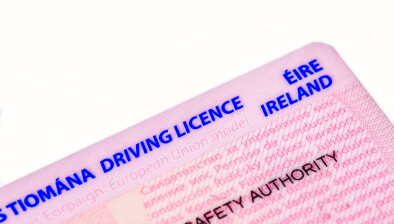High Court: Drink driving conviction quashed as trial judge erroneously relied on previous conviction to determine guilt

The High Court has quashed a conviction for drink driving after the trial judge had relied on a previous conviction for the offence when determining guilt in the matter. The man did not have any previous convictions but had been arrested on suspicion of being drunk in charge of a vehicle.

About this case:
- Citation:[2023] IEHC 207
- Judgment:
- Court:High Court
- Judge:Mr Justice Anthony Barr
In the circumstances, the DPP acknowledged that it was appropriate to quash the conviction as the trial judge relied on evidence that was incorrect and not admissible. However, Mr Justice Anthony Barr refused an application to remit the matter for fresh hearing. It was held that the trial judge made errors within her jurisdiction and that the man was entitled to rely on the plea of autrefois acquit.
Background
In September 2021, the applicant was tried and convicted in the District Court for the offence of drunk driving. The evidence before the court was that a sergeant had observed a car parked on the roadside. The applicant was in the driver’s seat with the engine running. He seemed to be asleep.
The garda outlined that the applicant got out of the vehicle, was unsteady on his feet and had slurred speech. He ran from the scene but was arrested shortly afterwards. A blood sample indicated that he was over the legal limit to drive.
In the course of the hearing, the garda was challenged on his evidence that he had properly formed the opinion regarding the applicant’s condition. During the cross-examination, the garda’s statement was handed to the judge and he was questioned on his forming of his opinion.
The applicant also gave evidence, claiming that he was on his way to a party when he stopped to make a phone call. He said he received distressing news and then drank from a bottle of vodka intended to be drunk at the party. He claimed to have turned off the engine but that it had kicked back into life due to a low battery. He stated that he did not have any intention to drive the vehicle.
The District Court judge held that she was satisfied that the applicant had not rebutted the presumption that he intended to drive the car. In reaching her decision, the judge said that the applicant had fled the scene in a panic due to having a previous conviction for a similar offence and he was afraid of the consequences.
When the applicant’s solicitor outlined his concern that the court had referenced a previous conviction, the court referred to the garda statement and said that was where she learned the information. The applicant received a fine.
No evidence had been given that the applicant had any previous convictions and the statement of the garda said: “I recognised him then as a person that I had previously arrested for being drunk in charge of a vehicle in Letterkenny in 2006.”
In the circumstances, the applicant issued judicial review proceedings seeking to quash the conviction. The DPP conceded that the conviction should be quashed on the grounds that the trial judge relied on matters which were incorrect and were inadmissible as evidence.
However, it was argued that the proceedings should be remitted for fresh hearing. It was submitted that a hearing conducted without, or in excess of, jurisdiction rendered a conviction void ab initio and therefore the matter could be remitted.
Further, it was said that even where a hearing was embarked upon within jurisdiction, a trial judge could make an error so serious that it amounted to acting without jurisdiction.
High Court
Mr Justice Barr outlined that there were two issues in the proceedings. The first issue was whether the principle of autrefois acquit applied in the case. The second issue was whether the court could exercise its discretion to remit the matter in the circumstances of the case.
The court held that the case law had resolved the question of autrefois acquit in the following way: “if the error was made within jurisdiction, but was sufficiently serious as to warrant an order of certiorari, the person on trial had been in jeopardy during the earlier proceedings and accordingly, was entitled to rely on the special plea of autrefois acquit”.
Conversely, if the error caused the inferior court to go beyond its jurisdiction, the proceedings were void ab initio and a nullity. This meant that the person on trial was never in jeopardy and therefore the special plea was not a bar to remittal for a rehearing.
Even where a plea of autrefois acquit was not open to the accused, the court retained a discretion to remit the matter or not pursuant to Order 84 Rule 26(4) of the Rules of the Superior Courts, the court held.
The court was satisfied that where a court embarked on a hearing within jurisdiction and, during the trial, the judge made an error which rendered the proceedings unfair, the error remained an error within jurisdiction (see Sweeney v. Brophy [1993] 2 IR 202; State (Keeney) v. O’Malley [1986] ILRM 31; Grennan v. Kirby [1994] 2 ILRM 199). The leading case on the subject was Stephens v. Connellan [2002] 4 IR 321.
The court distinguished the case of State (Holland) v. Kennedy [1977] IR 193 (relied on by the DPP) on the grounds that the case involved an error by the District Court judge which meant that he did not have jurisdiction to impose the sentence. Mr Justice Barr held that this was a decision made in excess of jurisdiction.
In the present case, the court did not go outside her jurisdiction. Instead, she conducted the hearing in a manner that was fundamentally unfair to the accused by referring to matters to which she should not have had regard. These was a serious error but did not deprive her of jurisdiction.
Accordingly, the court was satisfied that the applicant was entitled to rely on the plea of autrefois convict. In the circumstances, the court refused to remit the matter to the District Court.
Further, the court was satisfied that it should not exercise its discretion to remit the matter. The court noted inter alia that there was a delay of over three-and-a-half years since the alleged offence, the applicant had “played his hand” by giving evidence and that the offence was not at the most serious end of the scale.
Conclusion
The court quashed the conviction and refused the application to remit the matter back to the District Court.
McGonagle v. District Court for District No. 1 and Anor. [2023] IEHC 207











